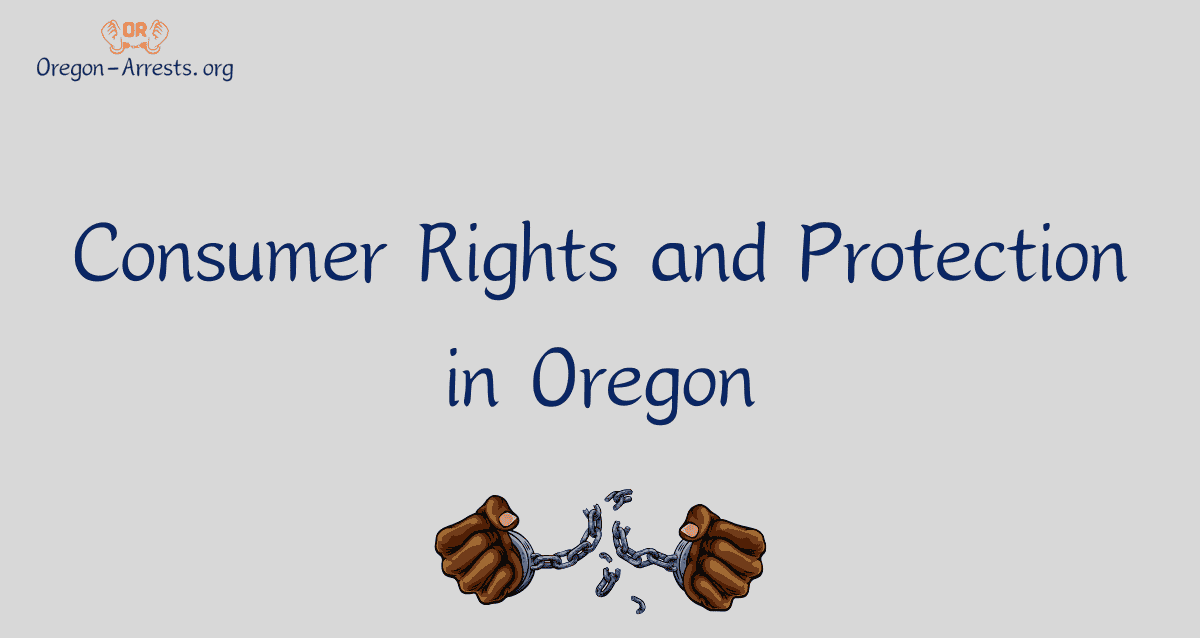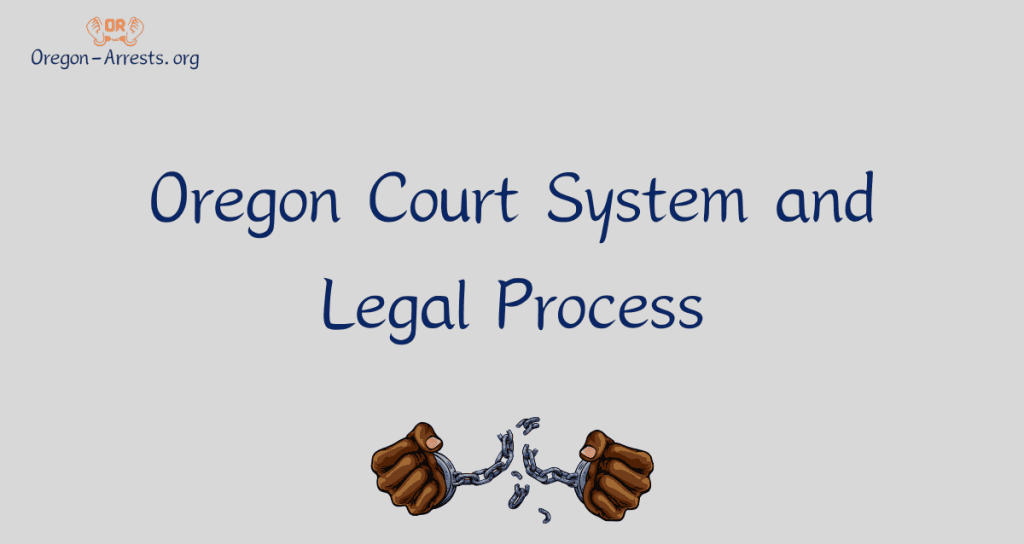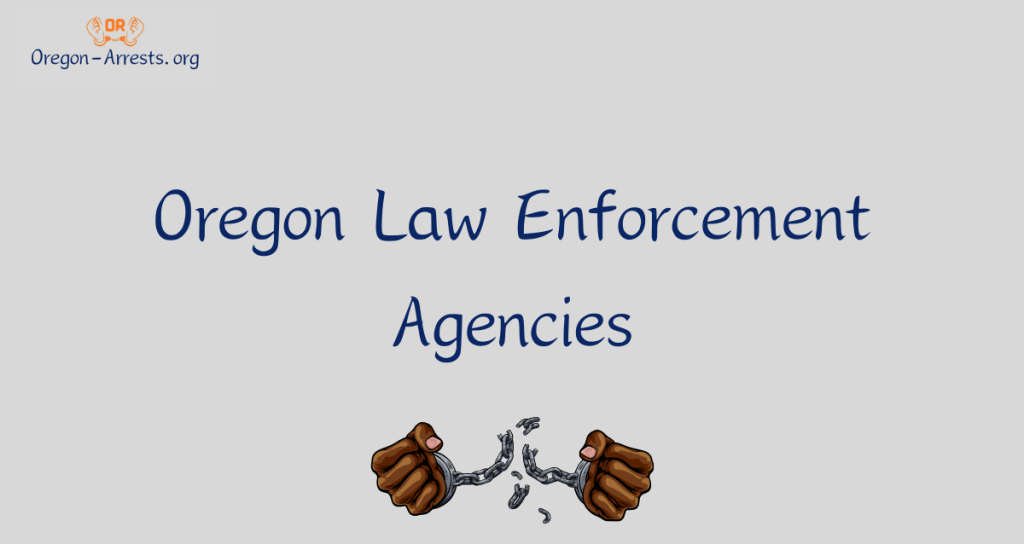Consumer Rights and Protection in Oregon
Consumer rights and protection play a pivotal role in ensuring a fair and secure marketplace. In Oregon, the state government has taken significant measures to safeguard the interests of consumers, ensuring that they can make informed choices and enjoy a certain level of confidence in their transactions. This Comprehensive Guide will explore the various aspects of consumer rights and protection in Oregon, covering essential topics and providing insights into the Oregon Consumer Protection Act (OCPA).
Oregon Consumer Protection Act (OCPA)
The Oregon Consumer Protection Act (OCPA) is the cornerstone of consumer protection in the state. It establishes a framework that safeguards consumers from deceptive practices and ensures fair business conduct. OCPA aims to create a level playing field where consumers are empowered and businesses are held accountable.
Key provisions of OCPA include stringent regulations against false advertising, fraud, and unfair business practices. It also empowers consumers to take legal action against businesses that violate their rights. OCPA has been instrumental in resolving countless consumer disputes and upholding the principles of fairness in commerce.
Consumer Contracts and Agreements
Understanding consumer contracts is vital for every Oregonian. Whether you’re signing a lease, buying a car, or subscribing to a service, contracts are a part of daily life. However, consumers must be cautious and read contracts thoroughly. Common issues like hidden fees, unclear terms, and unfair clauses can be avoided by being diligent.
To protect your interests, consider consulting legal advice for complex contracts. The OCPA also provides guidelines to ensure contracts are transparent and reasonable. Remember, a well-informed consumer is less likely to fall victim to unfair contract terms.
Product Safety Regulations
Product safety is a critical concern for consumers. Oregon has strict regulations in place to ensure that products meet safety standards. Regulatory authorities work tirelessly to monitor and enforce these standards, conducting inspections and issuing recalls when necessary.
Consumers can play an active role in product safety by researching products and reporting any safety concerns. When shopping for goods, look for safety certifications and read reviews to gauge product quality and safety.
Consumer Complaint Resolution
If you find yourself dissatisfied with a product or service, it’s essential to know your options for resolution. Start by addressing the issue directly with the business or service provider. If this doesn’t lead to a satisfactory resolution, you can file a complaint with the OCPA, which can mediate disputes and take legal action if necessary.
In more complex cases, seeking legal recourse may be necessary to protect your rights as a consumer. Consulting with an attorney can help you navigate the legal process effectively.
Deceptive Business Practices
Deceptive practices harm consumers and erode trust in the marketplace. Consumers should be vigilant in identifying deceptive practices and reporting them. Common deceptive practices include false advertising, bait-and-switch tactics, and pyramid schemes.
Oregon imposes severe penalties on businesses found guilty of deceptive practices, including fines and potential imprisonment for business owners. Reporting deceptive practices not only protects you but also helps maintain the integrity of the market.
Credit and Debt
Understanding consumer credit and debt is crucial for financial well-being. Oregon has laws in place to regulate debt collection practices and protect consumers from harassment. If you’re struggling with debt, seek information about your rights and consider financial counseling services.
Online Shopping and E-commerce
The rise of online shopping and e-commerce has brought convenience and challenges for consumers. While online shopping offers a vast array of products, it also poses risks such as scams and identity theft. To protect yourself, shop from reputable websites, use secure payment methods, and be cautious about sharing personal information.
OCPA plays a role in regulating e-commerce and addressing online consumer complaints. If you encounter issues with an online purchase, don’t hesitate to reach out to the OCPA for assistance.
Privacy and Data Protection
Data privacy is a growing concern in the digital age. Oregon has enacted data privacy laws to protect consumers’ personal information. It’s essential to safeguard your data, use strong passwords, and report any data breaches promptly.
Consumer Education and Resources
Oregon offers various resources to help consumers stay informed and make educated choices. Educational programs and workshops are available to increase consumer awareness. Staying informed about your rights as a consumer empowers you to make sound decisions.
The Role of Consumer Advocacy Groups
Consumer advocacy groups play a vital role in amplifying consumer voices and advocating for their rights. Prominent organizations in Oregon work tirelessly to address consumer issues, offer support, and lobby for changes in consumer protection laws. Getting involved with these groups can help you stay informed and make a difference.
Small Claims Court
When traditional resolution methods fail, consumers can consider small claims court. This option allows individuals to represent themselves and seek compensation for damages or disputes. Understanding the small claims process is essential for a successful outcome.
Tips for Safe Shopping and Consumer Choices
To navigate the complex marketplace successfully, research products and services, look for reviews and recommendations, and be aware of red flags that indicate potential scams or fraudulent businesses. Making informed choices is the first line of defense for consumers.
Future of Consumer Rights and Protection
Consumer rights and protection continue to evolve in response to changing market dynamics. As technology advances and new challenges emerge, Oregon will adapt its laws and regulations to ensure that consumers are adequately protected in the digital age.
FAQ’s
What are consumer rights and protection in Oregon?
Consumer rights and protection in Oregon refer to the laws and regulations put in place to ensure fair treatment and safeguard the interests of consumers when engaging in commercial transactions.
What are the main laws protecting consumers in Oregon?
In Oregon, consumer rights and protection are primarily governed by the Oregon Consumer Protection Act (OCPA) and the Unlawful Trade Practices Act (UTPA). These acts outline prohibited practices by businesses, such as deceptive advertising, unfair trade practices, and fraudulent activities.
How can consumers file a complaint in Oregon?
Consumers can file a complaint with the Oregon Department of Justice’s Consumer Protection Division (CPD) if they believe they have been victims of fraudulent or unfair business practices. They can submit their complaints online, by mail, or by phone.
What remedies are available to consumers in Oregon?
If a consumer’s rights have been violated, they may be entitled to various remedies. These can include compensation for financial losses, refunds, repairs, replacement of goods or services, and in some cases, punitive damages.
Are there any specific protections for vulnerable consumers in Oregon?
Yes, Oregon has specific protections in place for vulnerable consumers, such as the elderly, disabled, or financially disadvantaged. These protections aim to prevent exploitation and ensure that these individuals are not taken advantage of by unscrupulous businesses.
How does Oregon enforce consumer protection laws?
The Oregon Department of Justice’s CPD is responsible for enforcing consumer protection laws in the state. They investigate consumer complaints, conduct legal actions against violators, and collaborate with other agencies to ensure businesses comply with the regulations. Additionally, consumers can also seek legal recourse by filing civil lawsuits against businesses that have violated their rights.







